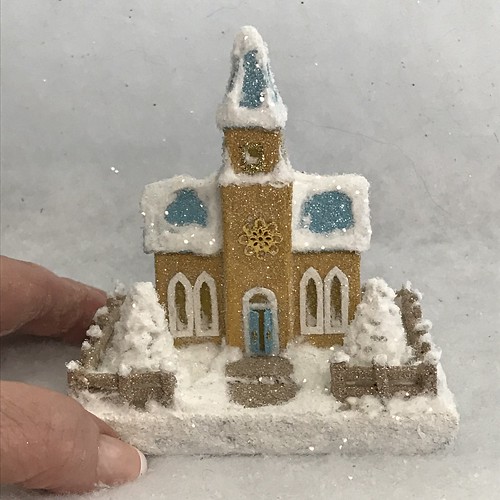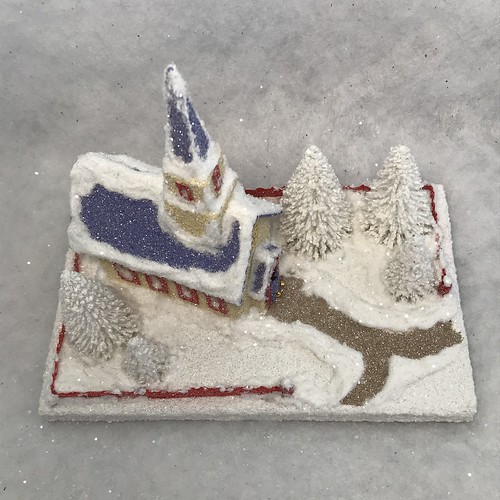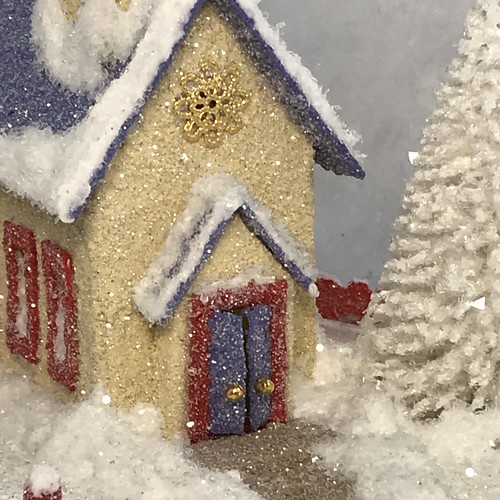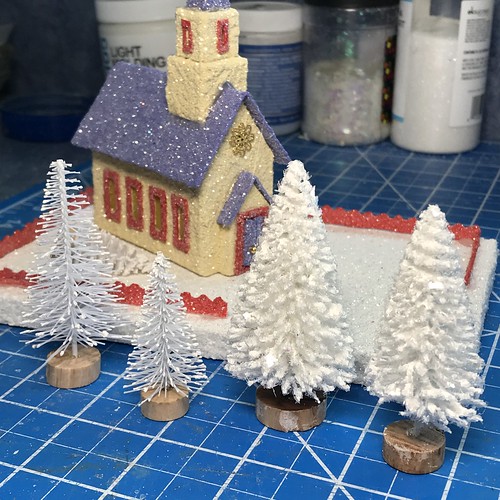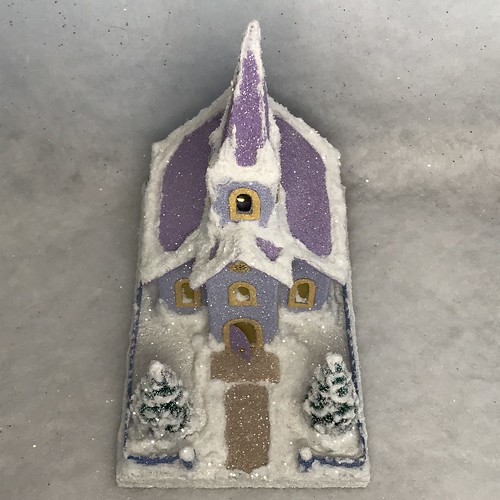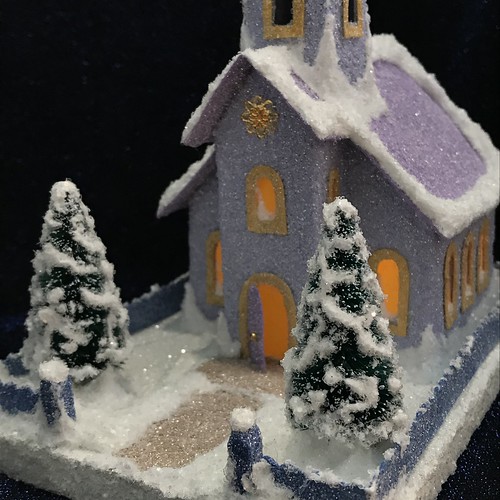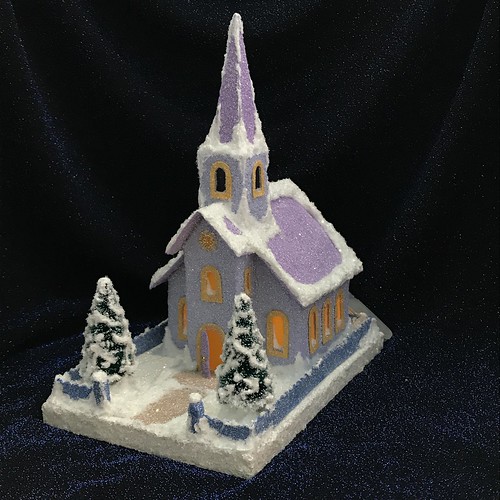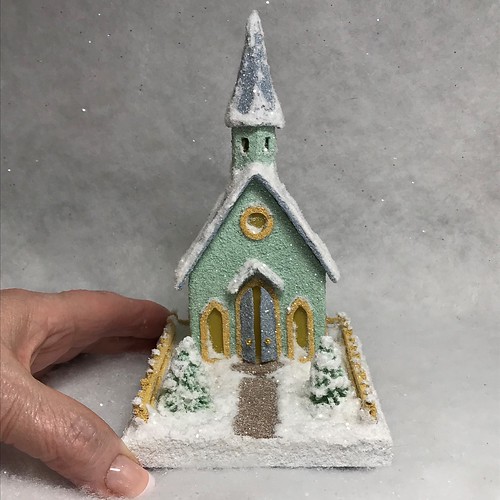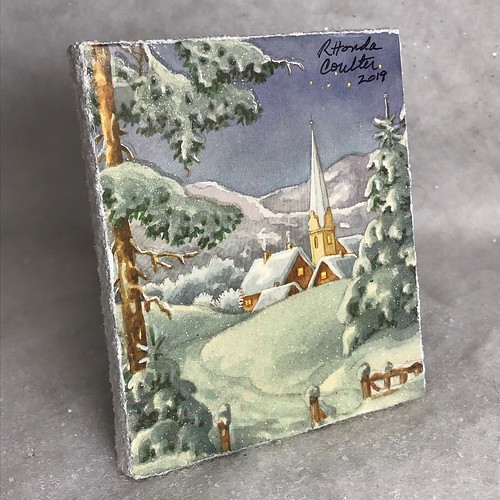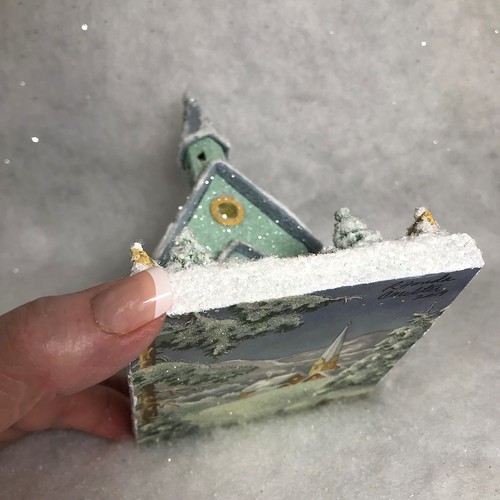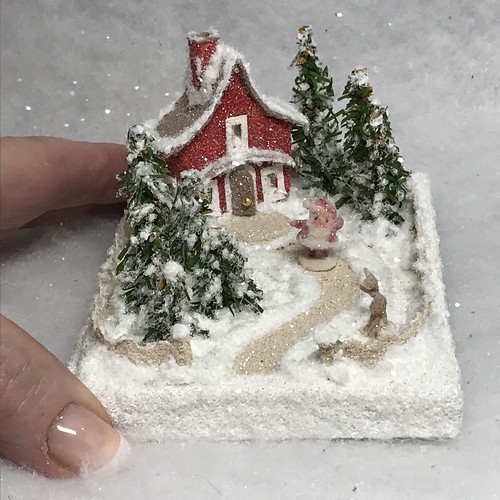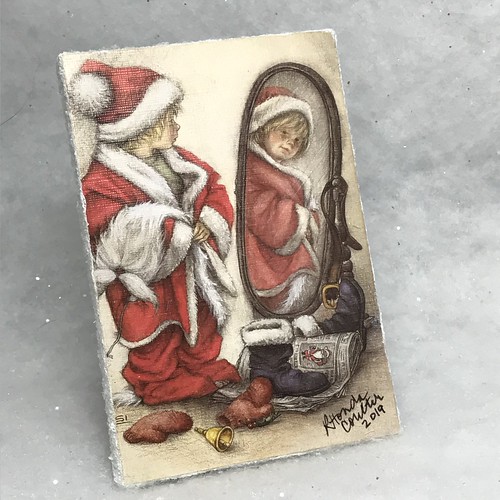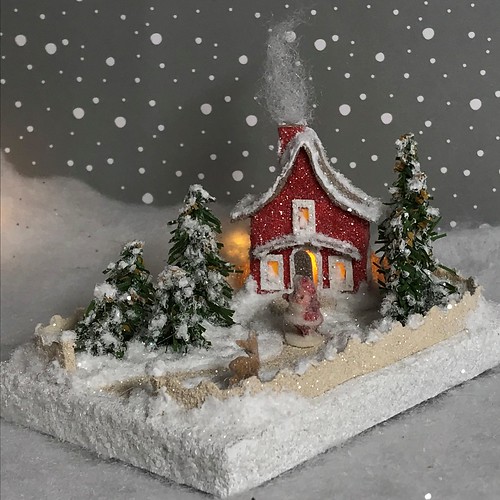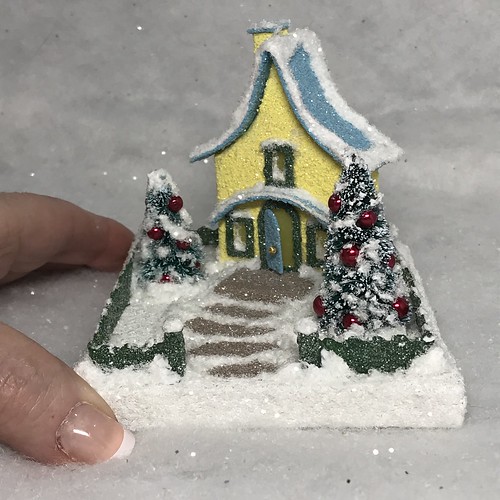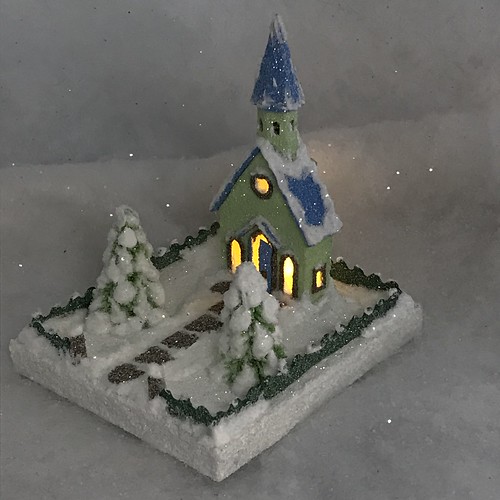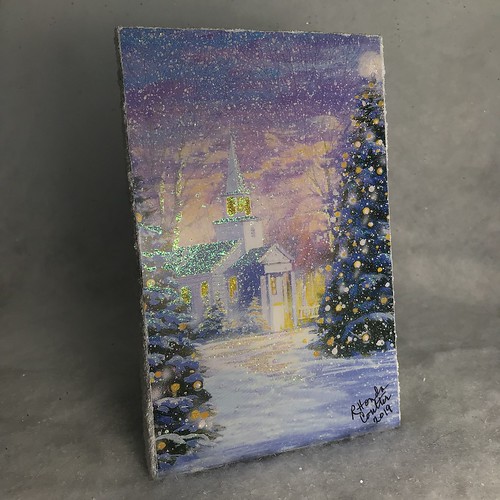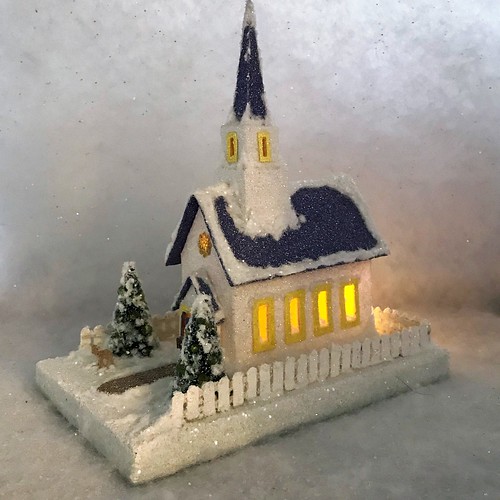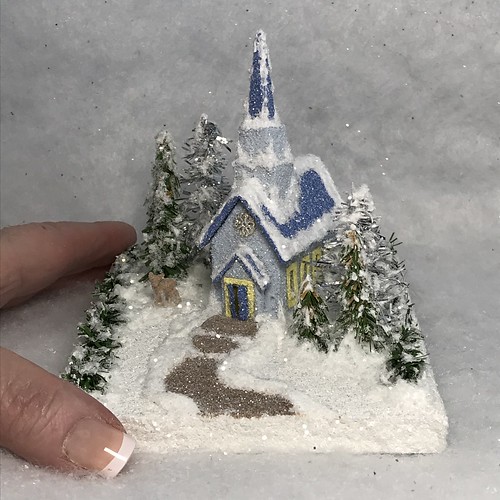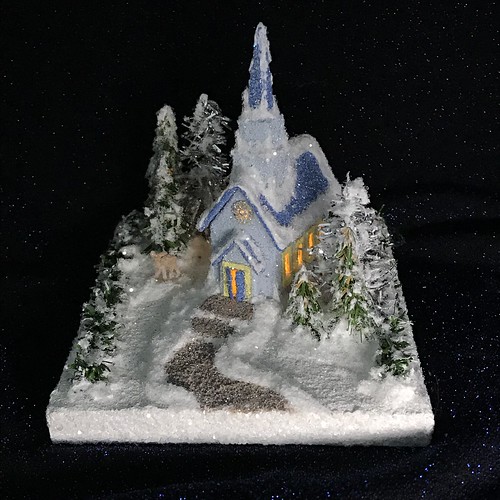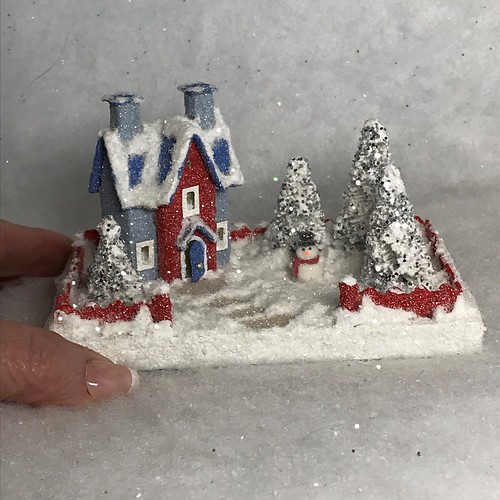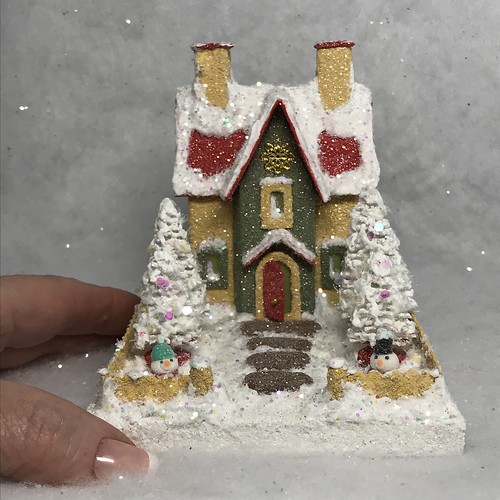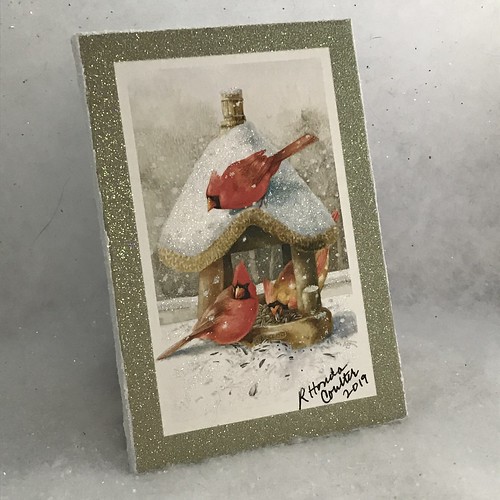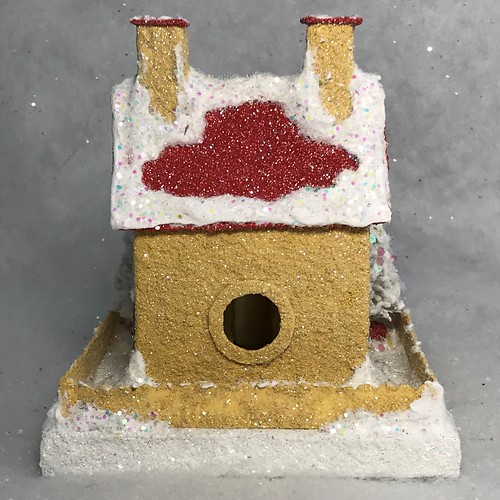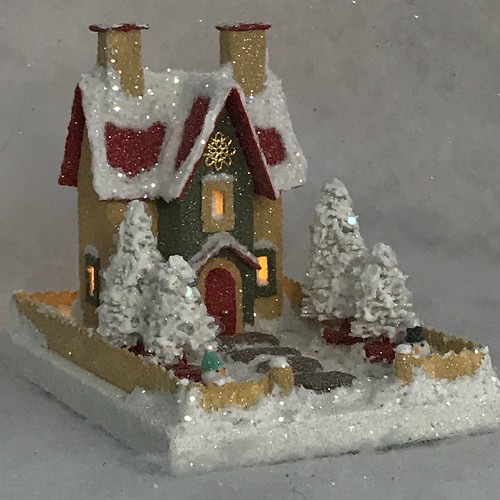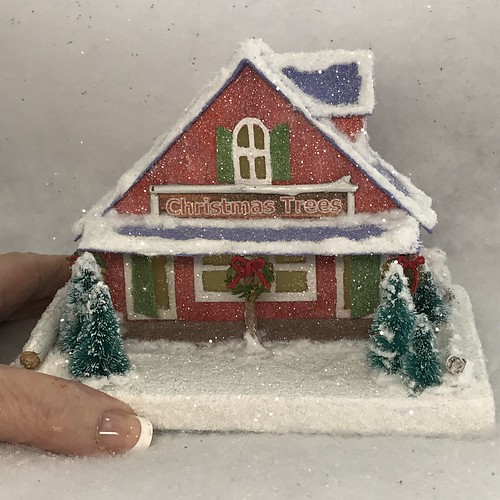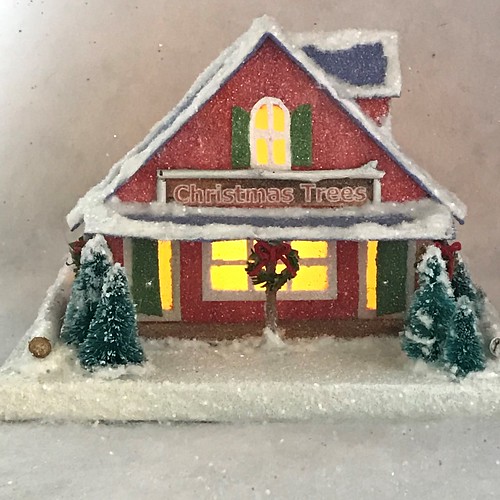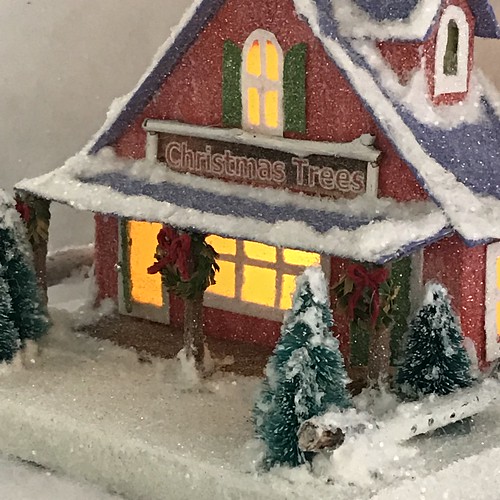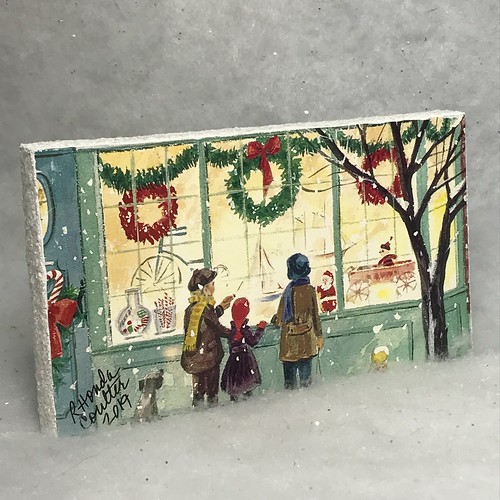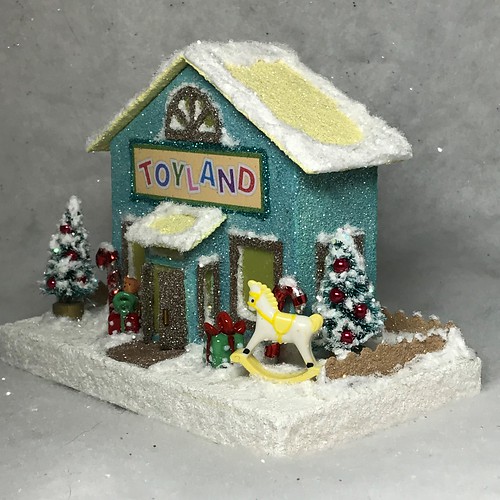I made this MINI Putz house a few weeks ago. It just sold and is on its way to a new home in Michigan. I’m very happy with the way it turned out. I have always liked this card and decided to make a base from it, then see what I could do with it.

I decided to make a “Santa house” and had the perfect polar bear to add to the Putz. The bear sports a red scarf that, thanks to being wired, can blow in the breeze. Santa stands nearby, with his arms full of Christmas goodies. This is the first time I used faux silver leaf on the roof. I will be doing that again.

I love this MINI church. The ivory color is one I like to use. The light green is a mixture I made myself to get the shade I wanted.

Another sweet card.
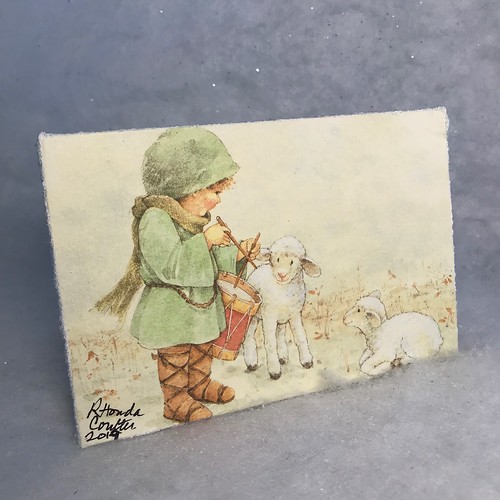
Two lambs frolic in the church yard, giving a hint to what’s pictured on the Christmas card I used to make the base.

This TINY MINI house was fun to make. I decided to add an arch of evergreen to give the house something special. The arch is lined with a green bead string for some subtle sparkle.
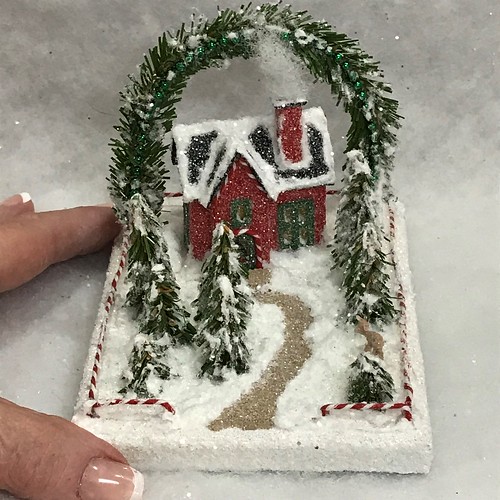
Another card I loved and wanted to use as a base.
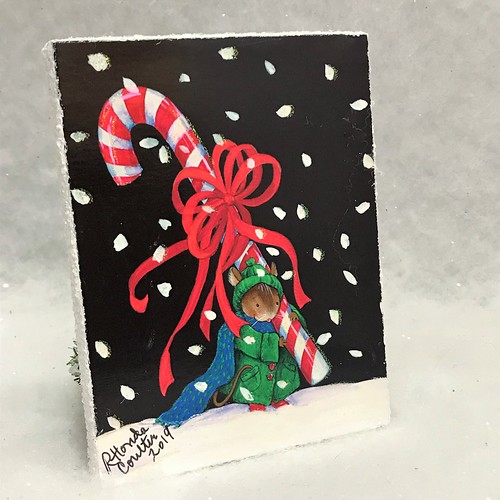
The arch over the door and the decoration under the gable eaves, as well as the fence, are made from wired candy canes. I added plenty of trees to the front yard. They are made from pieces of the same garland used to make the arch that frames the house. I cut the garland to the height I wanted for the trees, then trimmed the pieces to a point at one end. Instant trees that don’t take up as much room as bottle brush trees do.
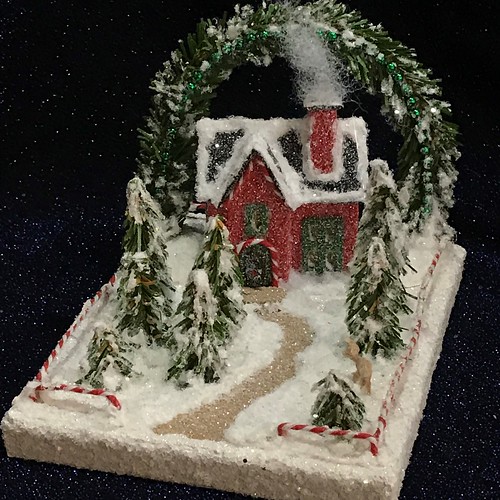
The barn is an ORIGINAL size. I haven’t made a barn for a while, so decided it was time.

All the barnyard animals are ready for Christmas!
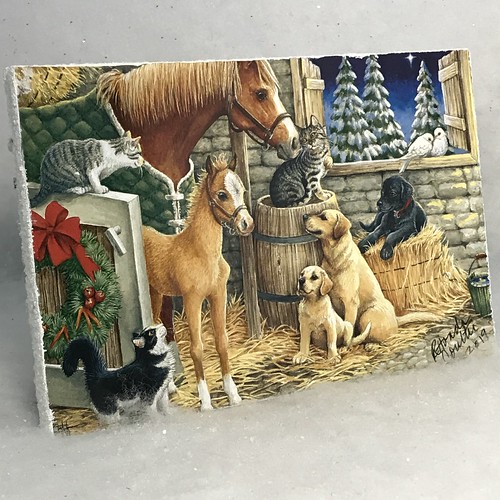
The horse and the cow are animals meant to be used for the HO scale in model railroading. Perfect for the barn.

I hope you enjoyed the tour of my new Putz. You can see my Putz houses, churches and barns and other Christmas ornaments in my Etsy shop.
If you are interested in crafting some Putz houses of your own, check out my Putz tutorials for more information. Putz House Tutorials
I am always happy to answer questions about the process. Please ask, if you are wondering about the details of putzing!
All proceeds from my Etsy shop benefit Kenya Mercy Ministries. They work with the urban poor of Nairobi, Kenya, particularly the children and their families who live in Kibera, the largest slum in Africa. Thank you for your part in helping these children when you purchase items from my shop!
~~Rhonda
